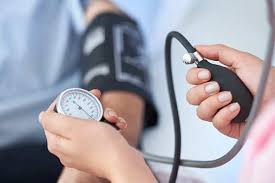Source: economictimes.indiatimes.com
New Delhi: Findings of India Heart Study (I.H.S) show that 21.10% of the respondents were white-coat hypertensive while 18.90% were found to have masked hypertensionthereby putting 40% people at the risk of misdiagnosis and ‘missed’ diagnosis. There were 1228 participants from Delhi with 804 males and 424 females.
Masked hypertension is a phenomenon when an individual’s blood pressure reading is normal at the doctor’s office but high at home; white-coat hypertension is defined as a condition in which people exhibit a blood pressure level above the normal range in a clinical setting only. White-coat hypertensives who are misdiagnosed and put on anti-hypertension drugs have to take unnecessary medication.
India Heart Study (I.H.S) findings highlight a high prevalence of masked hypertension and white-coat hypertension in Indians at 42% on the first office visit (doctor’s clinic). It was also found that Indians have a higher average resting heart rate of 80 beats per minute, higher than the desired rate of 72 beats per minute. Another striking finding of the study is that unlike other countries, Indians have higher blood pressure in the evenings than in mornings which should guide doctors to rethink the timing of advising anti-hypertensive drug dosage. “India Heart Study points to a need for better clinical management of hypertension in India. This is India-specific data and should help shape the best practices for the diagnosis of high blood pressure among Indians.
The study presents exhaustive data on the various aspects of hypertension,” said Dr. Upendra Kaul, Cardiologist, Chairman and Dean Academics and Research of Batra Hospital & Medical Research Centre, who was the Principal Investigator of I.H.S.
Throwing light on the study, Dr. Willem Verberk, PhD., Cardiovascular Research Institute Maastricht (CARIM), and a key investigator, said, “For the ‘correct’ detection of hypertension, home blood pressure monitoring is advised. However, different patients may have different co-morbidities, like diabetes, which makes the use of validated devices for home blood pressure monitoring important. Home blood pressure monitors for pregnant women, adolescents and people with kidney disorders needs to be validated separately.”
What sets this study apart is that it was conducted on ‘drug-naive’ set (people not on any hypertension drug) of participants using a comprehensive process of taking blood pressure readings. The investigators examined the blood pressure of 18,918 participants (male and female) through 1233 doctors across 15 states over a period of nine months. The participants’ blood pressure was monitored at home four times in a day for 7 consecutive days.
Eris Lifesciences commissioned the India Heart Study that was conducted under the aegis of Batra Hospital & Medical Research Centre.
